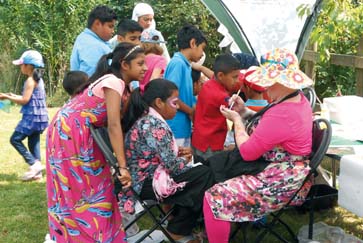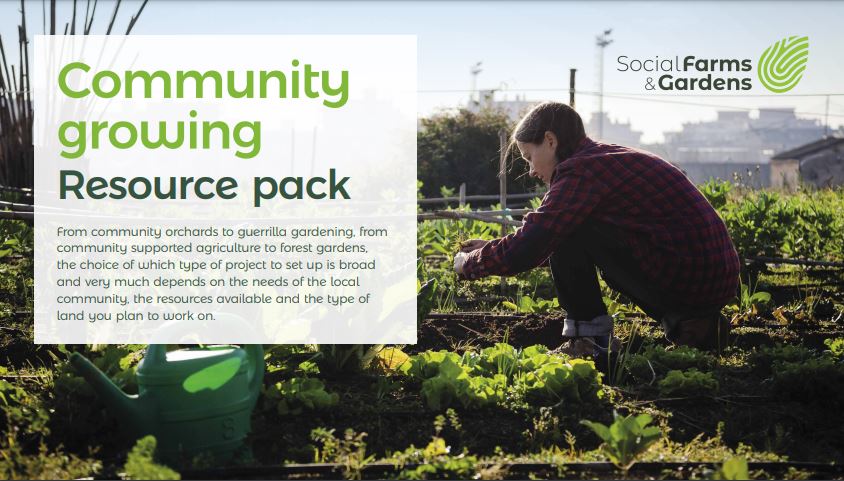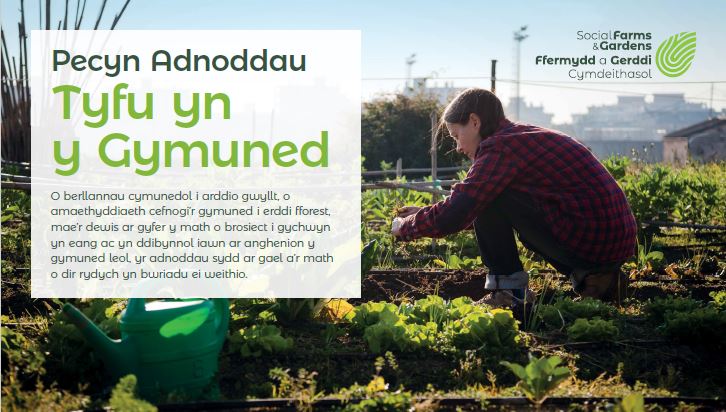Starting a community garden or farm? Here are 12 things to consider first...
1. What do you want to do? No two community growing groups are the same as each one is created by a unique area with unique needs, so it's important to know your community and have a good idea of what you'd like to create.
2. Finding your people. Spend some time finding people who share your enthusiasm and are prepared to put in some time and effort to generate further interest. At this stage you will need to agree a broad idea of what you want to do, what the benefits will be and the need for the type of project you are planning in your area.
3. Finding the right site. Many community growing spaces are created because there is an area of land that is derelict or underused and people want to improve it. Others begin with a group of people who share an interest in creating something (eg. a wildlife garden or food growing group) and need to find a site suitable for their project. Existing community growing spaces vary greatly in size from a few square metres to a park-sized area of several hectares, so many areas of land could be considered.
4. Planning and designing your site. Putting together a site design for your garden not only enables you to plan ahead and overcome any challenges your site presents, but also enhances ownership and involvement by the group itself.
5. Organising your group. A newly formed group will often just be a group of people with a shared aim or interest. As you expand it is important to formalise your group in legal terms, through a constitution or incorporation, helping you stay united around your purpose and do things like opening a bank account or applying for funding.
6. Volunteers. Whatever roles people do in or for the garden or farm, and no matter how much time they spend, if they aren’t getting paid, they are volunteers. Community growing spaces can offer a wide variety of opportunities for volunteering, for both the skilled and experienced so spending some time thinking about how volunteer roles can be organised and supported will pay long-term dividends for all involved.
7. Induction, training and retention. Once you have recruited your volunteer you need to think about how to introduce them into your organisation, history and aims, and explain clearly how you operate and the systems and policies you use on your site.
8. Being welcoming. Look carefully at the range of activities delivered as part of your project and find ways to be engaging and welcoming to the wide variety of people that make up your community. Events such as festivals can bring a lot of people to your space. Supplying tea and snacks to volunteers to bring them together at break times helps develop connections and make everyone feel valued and important
9. Building connections with businesses and partners. Once you have established your project, you may want to think about who else can support and get involved on your site. The business community is a good place to consider as they can potentially bring all sorts of added resources to your site.
10. Budgeting. A budget sets out what your group plans to do with its money over a financial year. Budgets help you manage and control the finances of your site. For example, your budget will enable you to predict difficulties, such as a shortfall in money to pay bills in a given month (a temporary cash flow crisis).
11. Action and business planning. An action plan shows how to execute and achieve your objectives. This differs from a business plan which often contains a lot of guesswork.
12. Evaluation and health of your organisation. Evaluation is crucial to understanding what you have achieved, what has gone well and what can be improved.
These elements form the structure for our comprehensive Community Growing Resource Pack, which is available for free to members.
Click the thumbnail below to download the full document (login required):
Events

Includes our own training events and workshops, and selected events and training run by organisations in the sector we think might be relevant. We aim to share the buzz and keep you informed.
Our Work

We are the leading UK charity dedicated to supporting city farms, community gardens, care farms & other green spaces.


